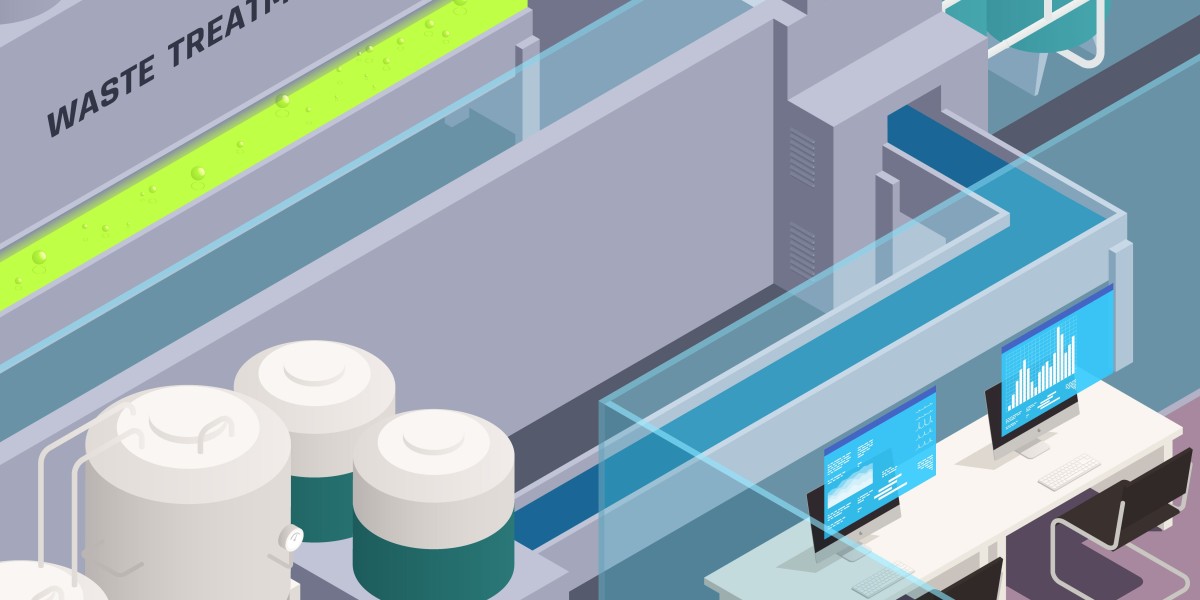Clean water is something we all rely on every day. But behind the scenes, there's a lot of work involved in making sure used water (wastewater) is treated properly before it goes back into nature. Thanks to modern technology, this process is now smarter and more efficient—and one of the key tools making it possible is SCADA.
What Is SCADA?
SCADA stands for Supervisory Control and Data Acquisition. That might sound complicated, but it's simply a system that helps people monitor and control equipment—like pumps, valves, and sensors—from a distance.
Instead of checking everything manually at a treatment plant, SCADA lets operators do it all remotely using automation. It's like having a smart assistant that keeps an eye on things 24/7.
What Is SCADA Telemetry?
SCADA telemetry is a system made up of sensors, software, and communication tools. It collects real-time information and sends it to operators—even if they are far from the plant.
With the help of HMI screens (Human Machine Interfaces), operators can:
See how the treatment system is performing
Turn machines on or off from anywhere
Look at past data to understand trends and changes
Why SCADA Is a Game-Changer for Wastewater Management
SCADA isn’t just about convenience—it brings real benefits that help make wastewater treatment better, faster, and safer. Here’s how:
1. Real-Time Information
SCADA gives live updates, so operators always know what’s happening. If something goes wrong, they can act quickly.
2. Early Warnings
If there's an issue—like a drop in chemical levels or a sudden change in water flow—SCADA sends out alerts. This helps stop small problems from becoming big ones.
3. Saves Resources
SCADA systems are smart. They adjust automatically based on current needs, helping reduce waste of:
Electricity
Chemicals
Time and money
4. 24/7 Monitoring and Alerts
Using tools like flowmeters, cameras, and data loggers, SCADA watches the system around the clock. If there’s a risk of overflow or a machine failure, it notifies the team right away.
5. Cuts Down Costs
Since SCADA can handle many routine tasks, fewer site visits are needed. That means lower travel and labor costs—and more time for staff to focus on important work.
6. Remote Access
Many SCADA systems now work on the cloud. This means:
Operators can access the system from anywhere
It’s easier to respond to emergencies
Fewer trips to the plant are necessary
7. Automatic Control
SCADA doesn’t just watch—it can act too. It handles daily operations and can even fix small issues on its own, helping keep everything running smoothly.
SCADA + Skilled People = Success
While SCADA is powerful, it still needs trained people to manage it. Human oversight ensures the system works as it should and stays safe.
Why SCADA Matters
Without proper wastewater management, we face serious problems like:
Water pollution
Health risks
Environmental fines
SCADA helps prevent these issues by keeping everything in check and making sure operators stay informed at all times.
Final Words
SCADA systems bring smart solutions to wastewater treatment. They help:
Save money
Reduce waste
Keep our water clean and safe
As our cities grow and technology advances, SCADA will play an even bigger role in protecting both our water and our planet.
Cognidel is a leading industrial automation training institute offering comprehensive PLC SCADA training in Bangalore, designed to equip students and professionals with practical skills in programmable logic controllers and supervisory control systems. With a strong focus on hands-on learning, Cognidel bridges the gap between theoretical knowledge and real-world applications, making it a preferred choice for aspiring automation engineers. The institute's curriculum is industry-aligned, and its expert trainers ensure that learners gain in-depth understanding of automation technologies used in sectors like manufacturing, water treatment, and power generation.









